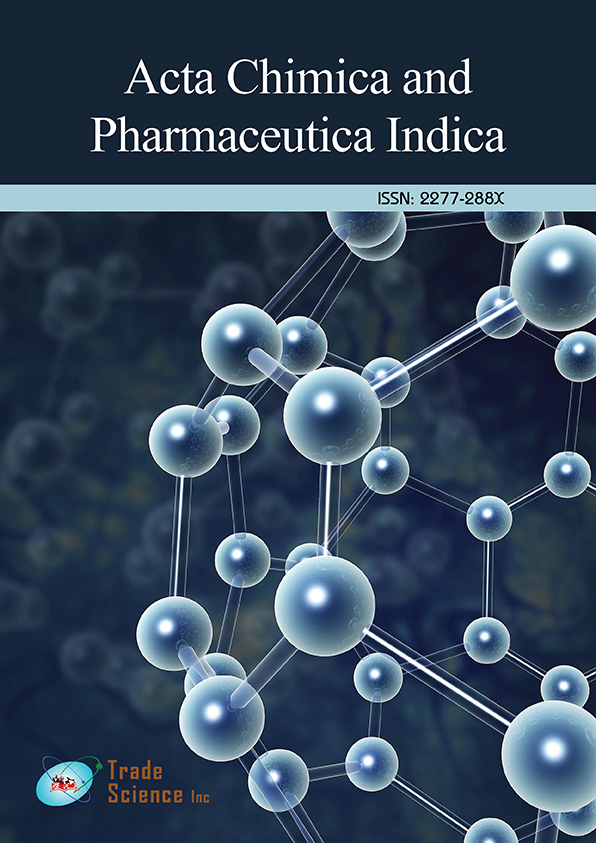Perspective
, Volume: 13( 2) DOI: 10.37532/2277-288X.2024.13(2).203Developing Anti-Cancer Medications through Conventional Ayurvedic Medicine
- *Correspondence:
- Esthetica farkSchool of Science and Health, Institute of Endocrinology and Diabetes, Australia, E-mail: estheticafa0023@gmail.com
Received: May 01,2023, Manuscript No. tsacpi-24-116874; Editor Assigned: May 05,2023, Pre-QC No. tsacpi-24-116874(PQ); Reviewed: May 20,2023, QC No. tsacpi-24-116874(Q); Revised: May 25,2023, Manuscript No. tsacpi-24-116874(R); Published: May 29,2023. DOI: 10.37532/2277-288X.2024.13(2).203
Citation: fark E. Developing Anti-Cancer Medications through Conventional Ayurvedic Medicine. Acta Chim Pharm Indica 2023;13(2):1-2.
Abstract
Ayurveda, an ancient system of medicine, has garnered significant attention for its potential in treating various diseases, including cancer. This research article explores the integration of conventional Ayurvedic medicine in the development of anti-cancer medications. Key Ayurvedic principles and herbs with anti-cancer properties are discussed, highlighting the need for further research to validate their efficacy and safety.
Keywords
Anti-cancer properties; Ayurvedic
Introduction
Ayurveda, an ancient Indian system of medicine, has a rich history and tradition dating back thousands of years. The fundamental philosophy of Ayurveda emphasizes maintaining a balance between mind, body, and spirit to promote overall health and well-being. In recent years, there has been growing interest in exploring the potential of Ayurvedic medicine in the development of anti-cancer medications. Ayurveda offers a holistic approach to health, incorporating various herbs and therapies that have demonstrated anticancer properties. This article aims to shed light on the potential of Ayurvedic medicine in developing anti-cancer medications and the need for further research in this domain.
Ayurvedic principles and anti-cancer properties: Ayurvedic medicine is based on the principles of three doshas (Vata, Pitta, Kapha), and their balance is essential for good health. Imbalances in these doshas are believed to lead to various diseases, including cancer. Ayurveda utilizes a range of herbs and therapies to restore this balance and promote overall health.
Several Ayurvedic herbs have shown promising anti-cancer properties. For instance, turmeric (Curcuma longa) contains curcumin, a potent anti-inflammatory and anti-cancer compound that has demonstrated potential in inhibiting the growth of cancer cells and reducing tumor size. Ashwagandha (Withania somnifera) has shown anti-cancer effects by inducing apoptosis (cell death) in cancer cells and inhibiting the growth of new blood vessels that support tumor growth.
Guduchi (Tinospora cordifolia) is another Ayurvedic herb known for its immune-boosting and anti-cancer properties. Research suggests that Guduchi may help in improving the body's response to cancer and enhancing the effects of conventional cancer treatments.
Conclusion
Ayurveda, with its holistic approach to health, offers a promising avenue for the development of anti-cancer medications. The ancient system provides a vast repertoire of herbs and therapies that have demonstrated anti-cancer properties. However, it is crucial to conduct rigorous scientific research to validate the efficacy and safety of these Ayurvedic treatments. Integrating Ayurveda with modern medicine and conducting well-designed clinical trials can potentially unlock the full potential of Ayurvedic medicine in the fight against cancer. Further research and collaboration between Ayurvedic practitioners, oncologists, and researchers are essential to harness the benefits of this ancient wisdom in developing effective anti-cancer medications.
